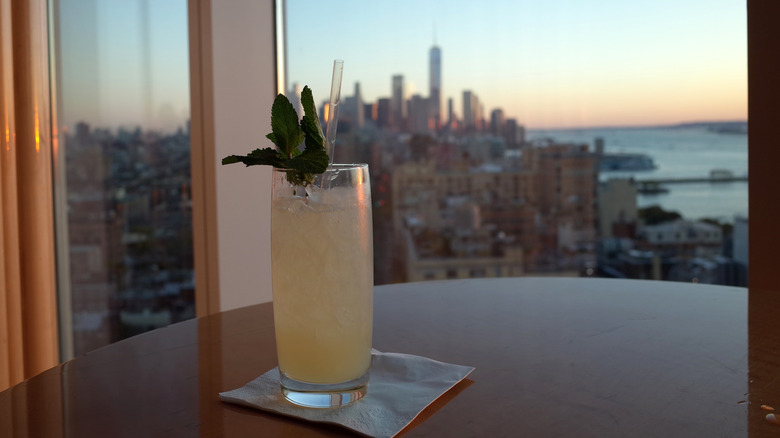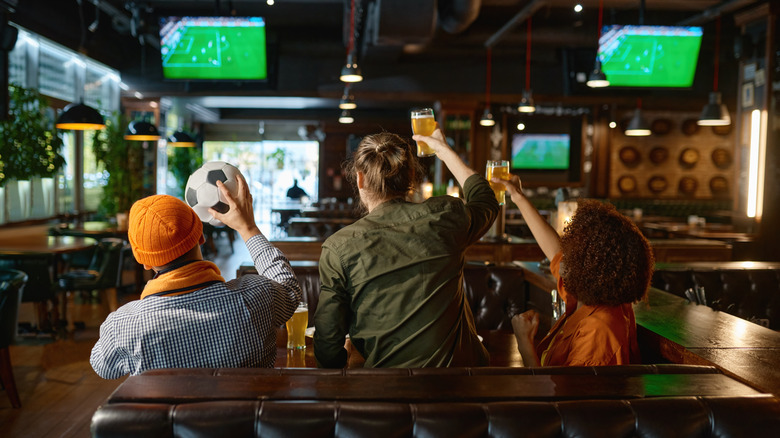Why New York Legalized Morning Drinking On Sundays After An 80-Year Ban
It's hard to imagine a fashionable Brooklyn neighborhood, on a beautiful summer day, without the concept of brunch. Groups of hipster twentysomethings, crowded patios, and bottomless pitchers of mimosas (that favorite two-ingredient cocktail) are a common occurrence on the weekends. But it wasn't until 2016 that a law was actually passed to allow these mimosas and bloody marys to legally occur before noon on a Sunday. Why the long wait? Thanks to some long ago "blue laws" that were passed during Prohibition, poor New Yorkers had gone more than 80 years without being able to get their drink on during the first half of the day. Called the "Brunch Bill," then-governor Andrew Cuomo officially signed the law into action in 2016, after putting together a committee to study the archaic liquor laws.
Of course, we know the government doesn't do anything purely out of kindness or for the good of the common people, so there's certainly a backstory here. A group of alcohol industry experts (dream job?) called the Alcoholic Beverage Control Law Working Group got together to review the outdated statute, which was enacted in 1934, after the repeal of Prohibition. Their conclusion was that the various laws concerning liquor licenses, craft manufacturers, and blue laws were not only confusing and dated, but, frankly, bad for business. In a press release, Cuomo stated, "this administration has taken important steps to cut red tape, roll back burdensome recommendations and help this industry continue to grow, thrive and create jobs in New York."
Why boozy brunch is good for business
The boozy brunch bill was part of a broader initiative by Cuomo to modernize the state's alcohol regulations, while also supporting the hospitality and tourism industries. International sporting events often start well before noon, meaning these viewers could not partake of their traditional sports-viewing beverages. European soccer games, for one, regularly start as early as 6 a.m. for those watching from across the pond. Restaurants were especially overjoyed by the news; going to brunch at 10 a.m. but having to wait until noon for a Bellini (or a toxically masculine "manmosa") was an unfortunate occurrence for both restaurant owners and diners. In fact, the Restaurant Association had even pushed for an earlier drinking time, 8 a.m., but accepted the compromise. Capitalizing on events like brunches and early sports games, which are significant revenue generators, gave a real boost to New York restaurants and bars.
Another industry that benefited from the booze bill was tourism, which is obviously a huge part of the Big Apple's economy. Hospitality and beverage industries had long been lobbying for this change, arguing that the law was out of touch with modern consumer habits. Brunch culture (love it or hate it) has grown significantly in popularity these past few decades, which only made New York's restriction increasingly inconvenient for consumers and businesses alike. Thankfully, due to the joined efforts of government, hospitality, and tourism, this is one archaic law that everyone can cheers goodbye to.

